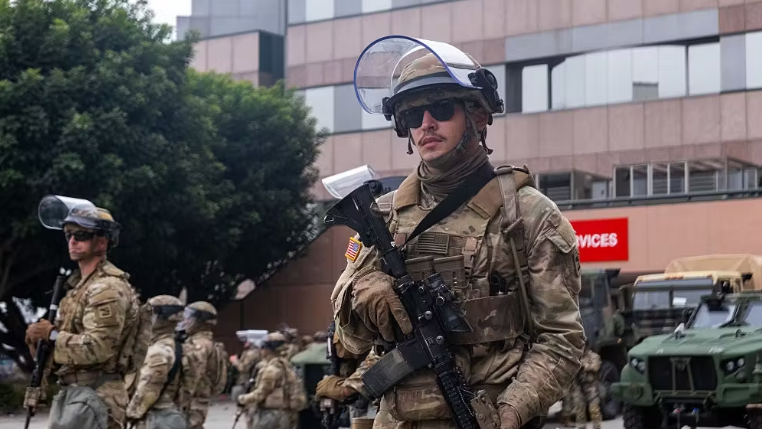Federal Judge Blocks Trump from Deploying Out-of-State National Guard Troops to Oregon Amid ICE Facility Violence
In a sweeping rebuke of presidential authority, U.S. District Judge Karin J. Immergut issued an expanded restraining order Sunday blocking the Trump administration from deploying out-of-state National Guard troops to Oregon — a direct response to President Donald Trump’s efforts to restore order in Portland following a wave of violent anti-ICE attacks.
The emergency ruling, which followed a temporary block issued Saturday, now forbids any federal relocation, deployment, or federalization of National Guard troops from any U.S. state or the District of Columbia into Oregon. The decision marks a significant clash between state sovereignty and federal enforcement powers as Portland becomes a flashpoint in the ongoing debate over immigration and public safety.
Immergut’s ruling came in response to a federal plan — approved by Secretary of War Pete Hegseth — to deploy 200 Oregon National Guard members and hundreds more from California to assist federal agents in protecting facilities and restoring order. The order followed President Trump’s Truth Social post on September 27, calling Portland “war-ravaged” and authorizing the use of “Full Force, if necessary” to defend ICE agents, federal property, and civilians from what he described as “Antifa and other domestic terrorists.”
Despite documented incidents of violence — including federal officers being assaulted with machetes and M80s, ICE employees being doxxed, and firebombs targeting federal buildings — Judge Immergut argued the situation did not rise to the legal threshold required for federalizing state troops.
“Untethered to the Facts”
Citing Title 10 of the U.S. Code, Immergut wrote that Trump lacked a “colorable basis” to invoke § 12406(3), which allows federalization when federal law enforcement is unable to execute federal law. She concluded that federal forces already on the ground had not been incapacitated and that additional National Guard deployment would be excessive.
Immergut also dismissed claims that Trump was acting to quell a “rebellion,” another potential legal justification under § 12406(2). “A rebellion must be violent, armed, organized, open, and directed against the authority of the federal government itself,” she wrote. “What we’re seeing in Portland may be lawless, but it is not a rebellion.”
A Historical and Legal Flashpoint
Legal experts and commentators quickly drew parallels to previous federal interventions, with some arguing that the judge’s interpretation could challenge decades of precedent. One observer noted, “She’s essentially saying the federal government can’t protect its own property. That’s dangerously close to Fort Sumter logic.”
The Trump administration pointed to clear precedents for cross-state National Guard deployments — such as the 1968 riots in Washington, D.C., where Pennsylvania and Maryland Guard units were deployed — but the court found these examples did not apply under the current statutory and factual conditions in Oregon.
A Violent Backdrop
Immergut’s ruling came amid growing violence directed at immigration agents. In recent weeks:
-
Protesters lit fires near ICE gates and launched fireworks at officers.
-
Federal Protective Services officers were assaulted with knives.
-
High-powered flashlights were aimed at ICE drivers to disable vision.
-
Personal information of ICE employees was leaked online.
Despite acknowledging these incidents, Immergut sided with Oregon’s Democratic leadership, who claimed that the presence of National Guard troops would escalate tensions, not resolve them.
“Martial Law vs. Constitutional Law”
In her conclusion, Immergut warned that approving Trump’s order would blur the lines between civil and military authority. “This is a nation of Constitutional law, not martial law,” she wrote. “The issues at stake in this case are important, and the consequences of this Court’s decision are far-reaching… As soon as the federalized National Guard deploys to Portland, the State of Oregon will suffer an injury to its sovereignty.”
The Trump administration is expected to appeal the ruling, setting up a likely Supreme Court showdown over the limits of federal power in states defying immigration enforcement.
In the meantime, Secretary Hegseth confirmed that Texas National Guard troops will still be deployed to Chicago this week, where a separate federal crackdown is underway following a series of car-ramming attacks against Border Patrol and ICE agents.

